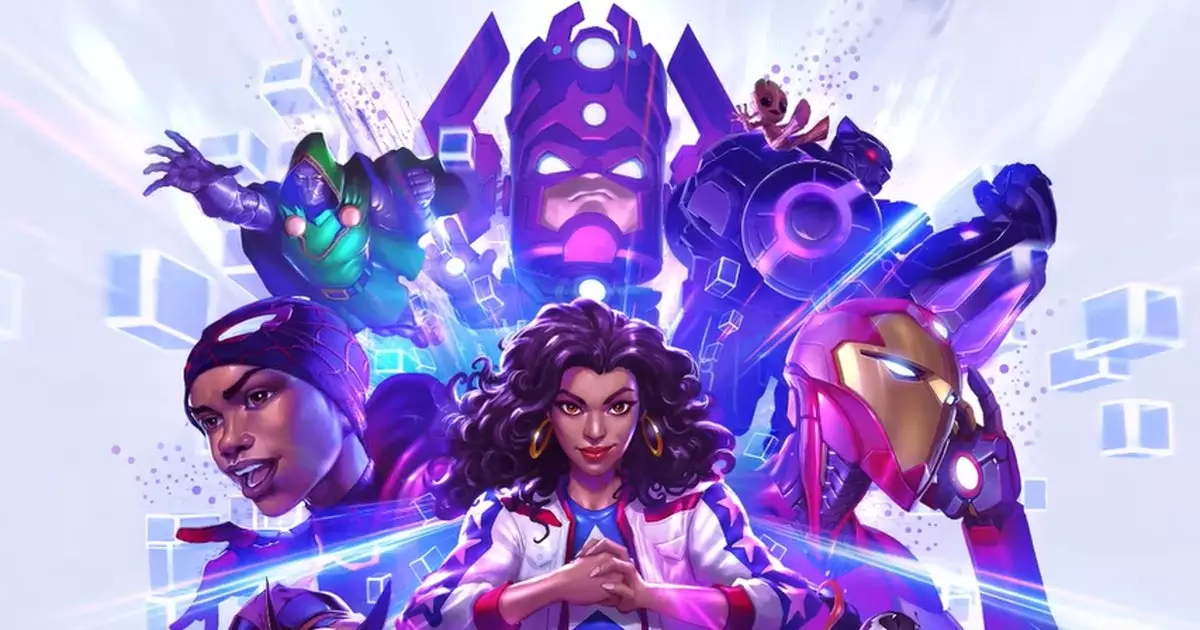The realm of mobile gaming is experiencing unforeseen turbulence brought on by geopolitical tensions, specifically the ongoing friction between the United States government and ByteDance, the Chinese parent company of TikTok. The abrupt unavailability of Marvel Snap, an immensely popular superhero card game developed by Second Dinner and published by Nuverse, signals the deep-seated ramifications of this conflict. In this article, we will delve into the implications of this incident, the underlying motivations driving the U.S. government’s actions, and the potential future of mobile gaming in a market riddled with regulatory challenges.
On January 18th, 2024, Marvel Snap was pulled offline from U.S. app stores without prior warning, much to the dismay of mobile gamers. This was a direct consequence of the broader legal measures targeting ByteDance as a result of national security concerns raised by U.S. lawmakers. The government’s contention is that TikTok could be misused by the Chinese government for espionage purposes, fearing that user data might be harvested and exploited. Given that TikTok boasts around 170 million users in the U.S. alone, these apprehensions are far from trivial. Lawmakers assert that the platform’s data practices and algorithmic manipulations could shape public opinion in more profound ways than we initially acknowledge.
In March 2024, the U.S. Congress mandated that ByteDance divest its ownership of TikTok to a U.S. entity, a measure intended to alleviate fears about data security. Although ByteDance has contested this decision, leading to ongoing litigation, the fallout of their operational challenges has now affected other entities under their umbrella—most strikingly, Second Dinner’s Marvel Snap.
The swift removal of Marvel Snap from U.S. app stores came as a shock, particularly since the developers, Second Dinner, appeared caught off guard. They took to social media, urgently communicating with their user base, assuring them that the game would be restored within 24 hours. While it’s commendable for a company to be so responsive, this episode highlights a vulnerability that exists not only within individual games but raises broader questions about the stability of products linked to foreign firms.
Interestingly, while Marvel Snap faced a blackout, other games under Nuverse’s wing, including Ragnarok X: 3rd Anniversary and Earth: Revival – Deep Underground, remain unchanged and accessible. This inconsistency raises eyebrows and prompts speculation about whether Marvel Snap’s removal was the result of a deeper administrative error or an actual governmental interference. As players fret over their inability to engage with the game, many have turned to TikTok to share gameplay clips, navigating this challenging time with digital nostalgia.
The current debacle not only places mobile gaming enthusiasts at risk of losing access to their favorite titles but also highlights a concerning trend in the industry: the increasing entanglement of gaming applications with political dynamics. The intersection of technology with governance is becoming increasingly palpable, emphasizing the fragility of digital entertainment in an age marked by compliance with governmental regulations.
As gamers face these disruptions, one cannot help but ponder the implications for future game development. Will more companies opt to avoid partnerships with foreign publishers that may jeopardize their products? Will regulations become stricter, leading to more instances reminiscent of the Marvel Snap scenario? Given the ease with which public sentiment can turn against foreign companies, including those from China, developers may need to initiate contingency plans to secure their games in unstable political climates.
The situation with Marvel Snap reflects the reality that the gaming industry, much like other sectors, must continuously adapt to external pressures. While temporary outages can be frustrating for players, they also serve as a wake-up call for developers to ensure they have contingency plans to safeguard against similar incidents in the future.
As players in the U.S. await the reinstatement of Marvel Snap, the hope is that these challenges will pave the way for greater autonomy in the gaming industry. Embracing transparency and establishing robust communication lines with players can reinforce consumer loyalty and trust—a crucial element during turbulent times. Meanwhile, the movie isn’t over for gaming, as developers strive to maintain momentum in a rapidly changing global landscape.
As we navigate the unforeseen consequences of ByteDance’s actions and the U.S. government’s response, it’s essential to remain cognizant of the evolving relationship between technology and policy. Only through resilience and adaptability can the gaming community and its players hope to thrive in the face of regulation.


Leave a Reply
You must be logged in to post a comment.